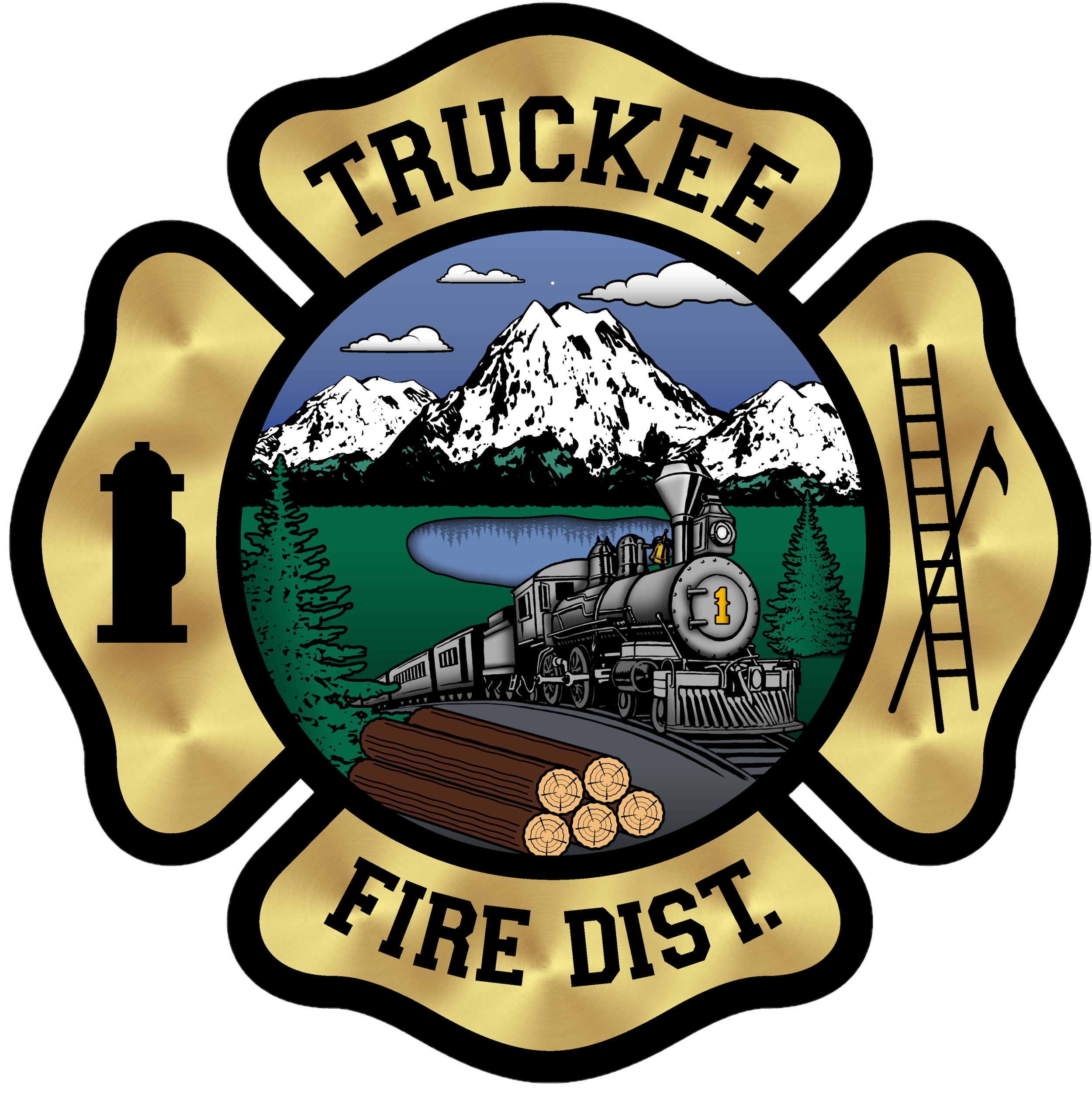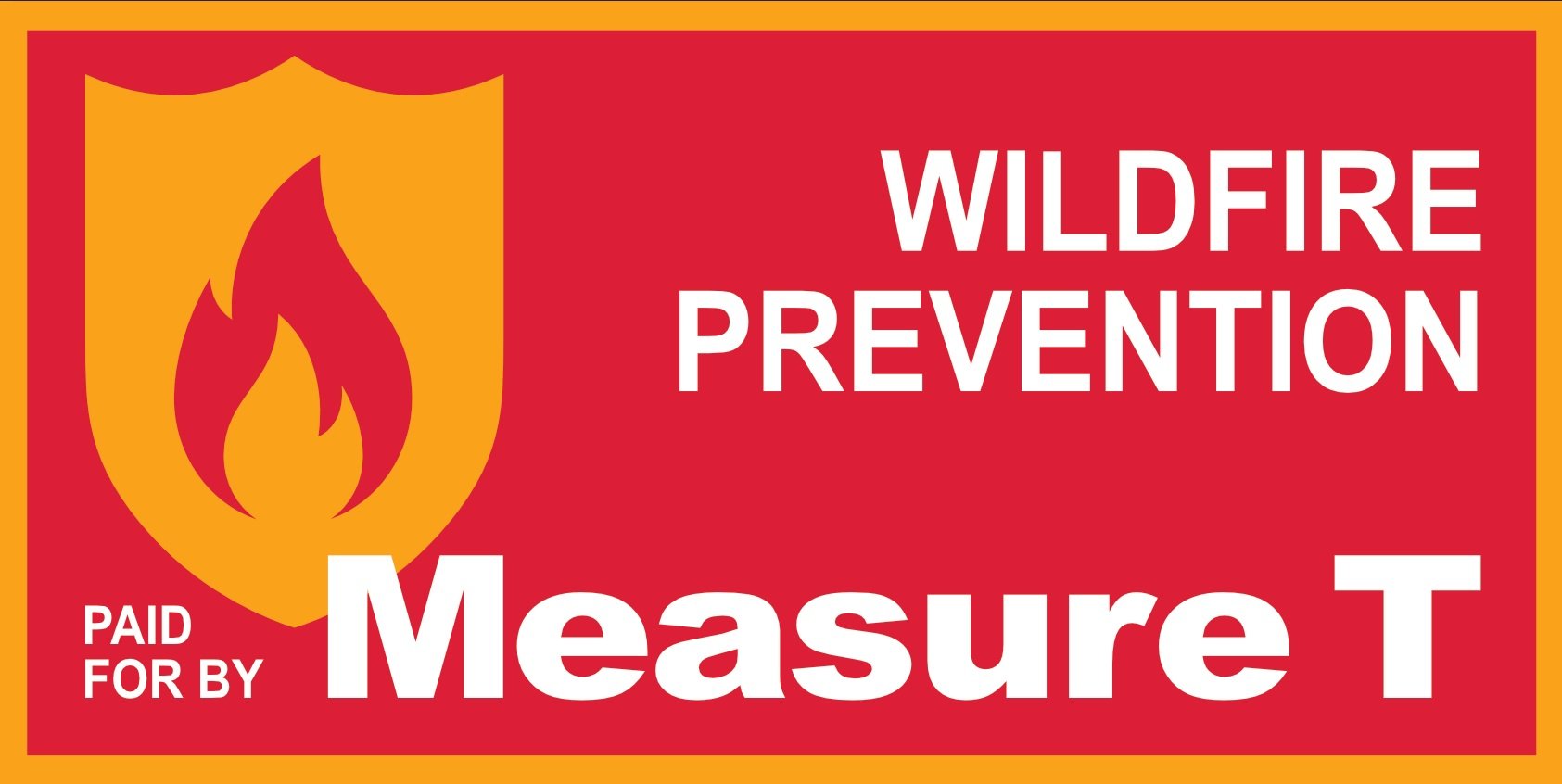Measure T
Community Wildfire prevention fund
implementation plan
Measure T Funds Implementation
On September 14, 2021, Measure T was passed by voters within the Truckee Fire Protection District. This measure levies a special tax of $179 per parcel, per year, creating a dedicated source of local funding for wildfire prevention. The measure has an 8-year sunset, at which time it will need voter approval to continue.
The tax will first appear on the 2022/2023 tax bill, and the District will expect to receive the first full year of revenues by July 2023. Since funds will not be available until 2023, the District will borrow funds from existing operation funds in order to begin Measure T implementation in the Summer of 2022.
This special tax will create an annual $3.7 million dollar Community Wildfire Prevention Fund that will be spent on various fuel reduction and wildfire prevention projects to reduce the threat of wildfire in the Truckee and Donner Summit wildland urban interface areas.
The District will work to continue to secure grant funding and matching funds from land managers whenever possible to leverage the Measure T funds.
Although the District will move quickly to implement the various wildfire prevention programs, it's important to remember that this fuels problem has been growing for 100 years, and it will take the next 10-20 years of consistent fuels reduction to make a significant impact.
Citizens Oversight Committee
Measure T calls for a citizens committee to provide oversight and to ensure that funds are spent according to the spending guidelines outlined in Truckee Fire Protection District Board Resolution 02-2021.
The Board will ask for applications from interested property owners located within the Fire District some time later in 2022, at which time interested parties will be able to submit an online application, which will be found here on our website.
The Board intends to select a group of individuals with varied backgrounds to meet, review expenditures, and report back to the Board of Directors.
Low-Income Exemption Information
An exemption from the cost of Measure T is available for low-income residents. People that earn less than 80% of the Median Family Income (MFI), as designated by each County, can apply for an exemption.
You can find more information on our Measure T Exemptions page.
Wildfire Prevention Projects
The revenues from Measure T are intended to fund programs that reduce the threat and intensity of wildfire in the Truckee and Donner Summit WUI by reducing fuel loads and better preparing the community for wildfire. Projects that reduce fuel are generally in two areas: support of residential defensible space, and larger land forestry type projects. Although we will not have the full revenue stream until the 2023 season (Fiscal Year 2022/2023), the District plans to start work now using operational reserve funds, which will be reimbursed when Measure T revenues arrive.
Like most revenue sources, there is not an endless amount of funds, so projects are prioritized by the District to achieve the largest return on investment. Although this is a baseline project list, there will likely be changes to the list as new opportunities become available and costs and benefits change over time. We will work to provide ongoing project status updates on this website throughout the year.
Planned Projects - 2022 Season (Fiscal Year 2021/2022)
Project management. The District has hired a Wildfire Prevention Manager that is responsible for Wildfire Prevention activities.
Additionally, we will be recruiting and hiring a Registered Professional Forester.
Green Waste Curbside Pickup. We plan to provide green waste pick-up in front of residential properties throughout the spring, summer and fall. Visit our Green Waste page for more information!
Residential Property Defensible Space Inspections and Education. We are planning to hire 4 additional seasonal defensible space inspectors for the 2022 season to double the number of inspections in the District. They will be in place by June 2022.
Benefit: Inspectors provide property inspections, education, and accountability to property owners on work that needs to be completed to meet the Public Resource Code 4291, local Ordinances and fire safety best practices. The additional inspectors will increase annual inspections to over 4,000.
Large Land Forestry and Fuels reduction projects. Identifying larger properties in the District that are in need of fuel reduction is a priority. The focus on the first year is to update the current Community Wildfire Protection Plan (CWPP) because this document will help prioritize and inform this work. The District is in the process of completing about $3 million in grant-funded work in the WUI that will be mostly completed by next season, allowing for a transition to the next forestry projects. This year we will hire a full-time Registered Professional Forester for the 2023 season and beyond.
Benefit: Reducing fuels on larger pieces of land in and around neighborhoods will reduce fire intensity and make a healthier more sustainable forest.
Community Wildfire Prevention Plan Update (CWPP). We will retain a consultant and update the CWPP winter of 2022 for an estimated completion date of July 2023. Visit our CWPP page for more information.
Planned Projects - Seasons 2023 (FY 2022/2023) and Beyond
Residential Dead Tree Fund. Trees die from drought stress and the bark beetle. These dead trees become a fire hazard to the neighborhood and need to be removed promptly to prevent the spread of the bark beetle. We estimate 50-100 trees need to be taken out of residential properties annually. If the drought gets worse in subsequent years, it may be difficult to fully fund the need in the future.
Benefit: Reduce fire hazard and bark beetle habitat.
Community Wildfire Prevention Grants. We will encourage local land managers, HOAs and other groups to apply for fuel reduction grants when needed. These groups are often experienced at fuels reduction programs and can implement them with little assistance from the District.
Benefit: We are able to leverage other organizations to get more cost-effective work done in the WUI with oversight from the District.
Evacuation routes and systems. Keeping key evacuation routes clear of brush, dead trees and ladder fuels is a priority. Each year we will hire a contractor to removes these fuels along the key neighborhood evacuation routes, in collaboration with the Town of Truckee, Nevada County and Placer County. This area can also support evacuation planning and early fire detection, such as Fire Cameras in our WUI.
Benefit: Keeps fire intensity low along key evacuation routes.
Elderly and Disabled Defensible Space Assistance. This program will provide defensible space work to those that cannot physically, or financially get the work done. Qualified properties will be identified, and contractors hired to do the work.
Benefit: Making sure every property is doing fuel reduction creates a contiguous fuel reduction area.
Home Hardening Rebate Program. Home hardening, including things like replacing wood roofs, tighter vents, and fire resistive construction materials for decks and siding. The funds aim to provide some portion of rebate to spur and assist improvements in this area.
Benefit: Improve homes ability to withstand wildfire impingement and ember fires.
Long-term green waste disposal solutions. Many of these programs will dramatically increase the amount of green waste heading to the landfill. The challenge is that the costs of green waste disposal are going up, and there are fewer ways to dispose of the materials, so we need to look at and support long-term green waste disposal options. One option is a biomass plant that burns the chipped material and turns it to heat or power. This is proven technology. In anticipation of this measure we have started a biomass scoping study with the Town and Airport to understand the extent of the problem as well as the landscape of solutions.
Benefit: Local solution to part of the biomass problem, reducing costs to remove materials which extends the fund for more work and reduces greenhouse gas emissions from long-distance transportation of material.
Critical infrastructure fuels reduction. In the Fire District there are certain critical infrastructure, the hospital and cell towers, for example, that need to have ongoing fuel reduction to keep these services operational during a wildfire.
Benefit: Keeps vital services operational during a wildfire and reduces fuel in the WUI.
Learn More About Fuel Treatment!
Additional information about Measure T:
Measure T Community Wildfire Prevention Fund Implementation Plan & Budget Summary




